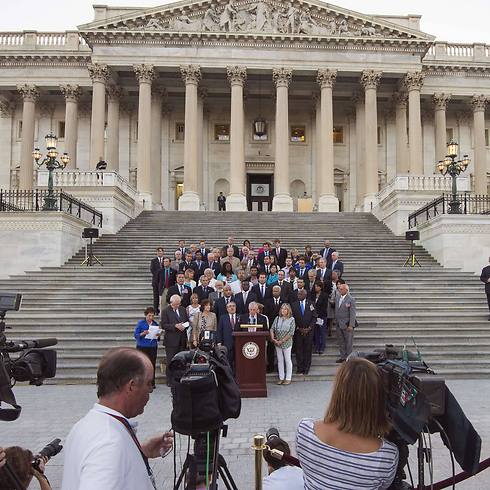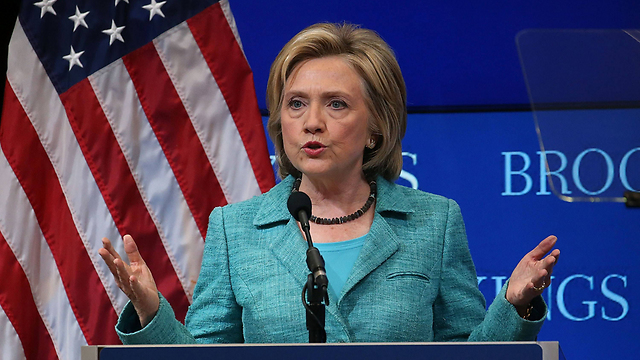Leaders in the House of Representatives say Republicans considering alternative legislation due to lack of votes needed just to debate resolution of disapproval.
Republicans who control the US House of Representatives are weighing the possibility of abandoning a disapproval resolution for the Iran nuclear deal, as doubts grow that the legislation has enough votes to even clear a procedural hurdle, a Republican leadership aide said on Wednesday.
The House was on a path to vote later on Wednesday on the rule for debating the measure, a procedural step that would have cleared the way for passing the resolution of disapproval later this week.

Now, Republican leaders are weighing other legislation as well, instead of the disapproval bill, the aide told Reuters, adding no decision has been made.
Tough talk
Democratic presidential front-runner Hillary Clinton vowed on Wednesday not to shrink from military action against Iran if it tries to obtain atomic weapons and threatened to impose penalties on Tehran for even for small violations of its nuclear deal with world powers.
In a speech to a Washington think tank, the former secretary of state reiterated her support for the accord but cautioned that she would take an approach of “distrust and verify” toward Iran if she won the November, 2016 presidential election.

“As president, I will take whatever actions are necessary to protect the United States and our allies. I will not hesitate to take military action if Iran attempts to obtain a nuclear weapon,” she said.
However, Clinton also stated that the deal would not have earned her favor if she felt that it threatened Israel.
Clinton expects the Islamic Republic will try “to see how far they can bend the rules” of the agreement it reached in July with the United States and other major nations including Russia and China.
“I’ll hold the line against Iranian noncompliance. That means penalties even for small violations,” she said.
Checking ‘ambiguities’
Meanwhile, the UN nuclear watchdog said on Wednesday it had sent questions to Iran over “ambiguities” in its submissions as the agency assesses whether Tehran’s past activities were entirely peaceful, an assessment crucial to a diplomatic pact with Iran.
Under a roadmap agreement between Iran and the International Atomic Energy Agency (IAEA) reached alongside the July 14 deal between Tehran and six world powers, the agency must assess by the end of the year whether past work carried out by Iran was aimed at producing nuclear weapons, which Iran denies.
“The IAEA has undertaken a rigorous and thorough review of the explanations provided by Iran on 15 August under the roadmap,” Fredrik Dahl, a spokesman for the agency, said. “Yesterday, the IAEA submitted questions to Iran on ambiguities identified by the agency.
The submission of the questions was in keeping with the roadmap’s timeline, which provided for the agency’s questions to be sent to Iran by Sept. 15.
“Technical-expert meetings, technical measures and discussions will be organized in Tehran prior to 15 October 2015 to remove the ambiguities identified by the IAEA,” the agency said in a statement.
The IAEA is due to provide its assessment by Dec. 15.
As reported by Ynetnews
